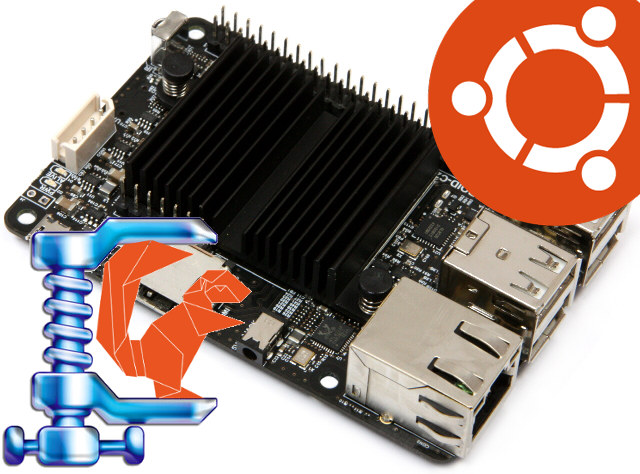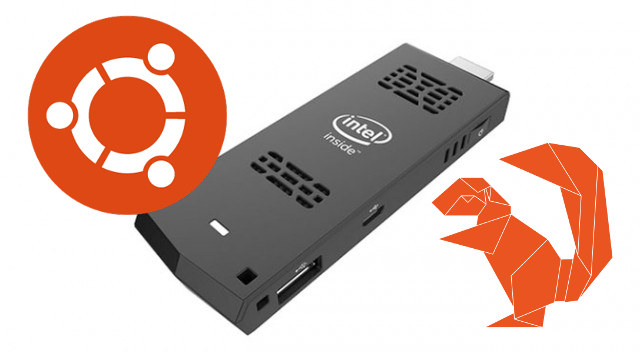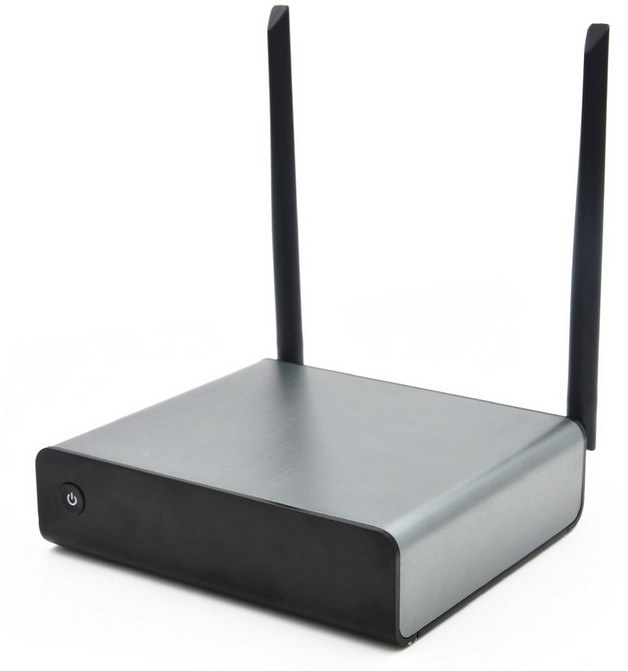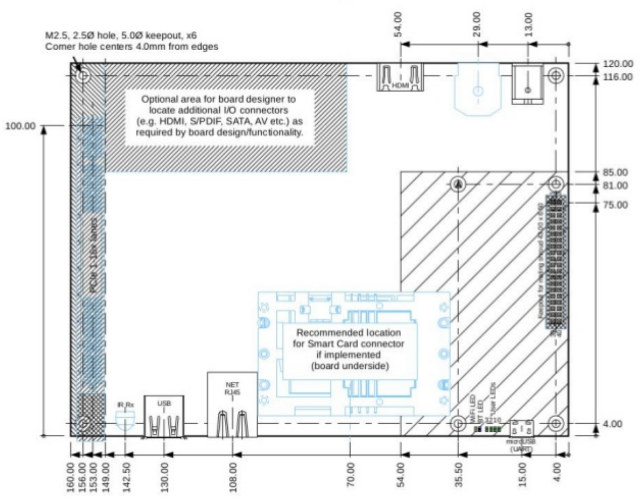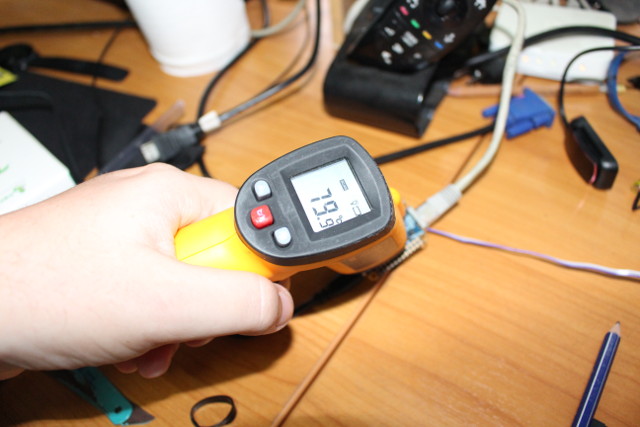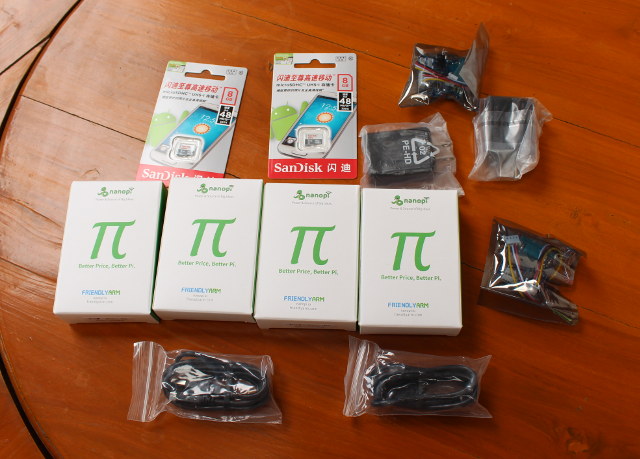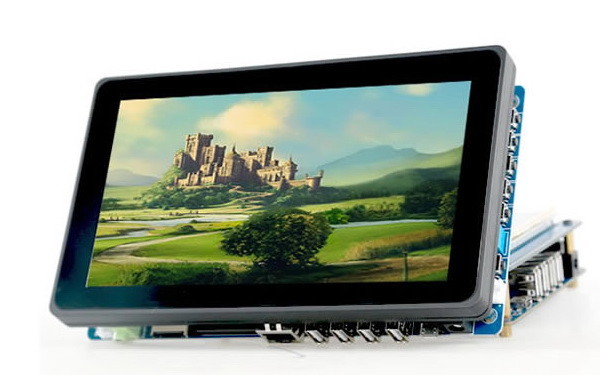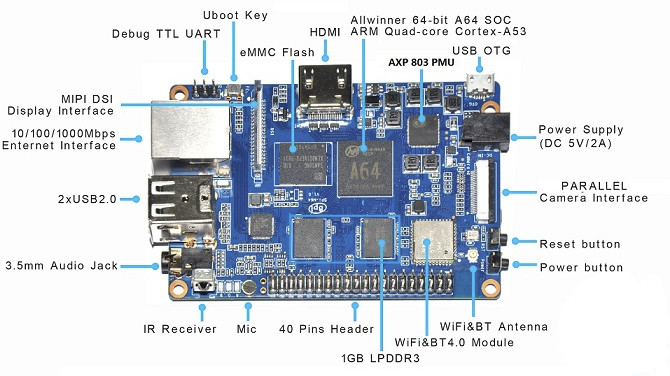If you’ve been wanting minimal Ubuntu distributions for your server, IoT, or other headless projects, there are some good news from Hardkernel with the release of a minimal Ubuntu 16.04 image for ODROID-C2 and ODROID-C1+ boards, and Canonical has recently announced Actions Semi S900 based BubbleGum-96 board was getting support for Ubuntu Core distribution. If you’re using an ODROID board you can download ubuntu64-16.04-minimal-odroid-c2-20160803.img.xz (196MB) firmware, which become 1.7 GB once uncompressed and flash it 2GB or greater micro SD card. After Raspberry Pi 2 and Samsung Artik 5/10, Bubblegum-96 is the third officially supported board that can run Ubuntu Core. You can download the 3.63GB beta image and instructions to flash it from an Ubuntu 16.04 machine on Mega. Bugglegum-96 is a 96boards compliant development board based on an quad core Cortex A53 processor with 2GB RAM and 8GB flash manufactured and sold by ucRobotics for $89. Jean-Luc Aufranc […]
Ubuntu 16.04.1 ISO Images Released for Intel Atom Bay Trail & Cherry Trail Compute Sticks
Canonical has recently released Ubuntu 16.04.1, which is now considered stable enough to update from Ubuntu 14.04.04 LTS, and while I could do that easily on my main machine using update-manager, upgrading to Ubuntu 16.04 on Intel Atom “Bay Trail” and “Cherry Trail” devices is a bit more complicated if you need audio & wireless networking (WiFi/Bluetooth) support since the kernel needs to be patched, and on top of that recent Linux kernels are not stable on such platforms without some extra hacks. Linuxium has done all the hard work, and created Ubuntu 16.04.1 ISO images for Intel Atom Compute Sticks with working audio, WiFi, Bluetooth, and “C-state” patchsets to avoid freezes. The images may also work on other devices, but this has not been tested so far. If you want to give it a try, you can download ubuntu-16.04.1-desktop-linuxium-ics.iso, and flash it to a USB drive with Rufus (Windows) […]
Star Cloud PCG61 Intel Celeron “Braswell” Ubuntu 16.04 / Windows 10 Pro Mini PC Features Up to 8GB RAM
MeLE showcased their PCG61U mini PC powered by an Intel Celeron N3150 processor and running Ubuntu last April at the Hong Kong Electronics Fair. The company has now launched Star Cloud PCG61 on Aliexpress where it sells for $149 and up with either Windows or Ubuntu. Star Cloud PCG61 specifications: SoC – Intel Braswell Celeron N3150 quad core processor @ 1.60/2.08 GHz with 12 EU Gen8 Graphics(6W TDP) System Memory – None, 4 or 8GB DDR3L Storage – 0, 64 or 128 GB mSATA SSD (upgradeable up to 256GB), micro SD card up to 512GB Video Output – HDMI 1.4 & VGA Audio – HDMI, 3.5mm microphone and earphone jack Connectivity – Gigabit Ethernet, 802.11 b/g/n & 802.11ac WiFi, and Bluetooth 4.0 USB – 2x USB 3.0 ports, 2x USB 2.0 ports Misc – Power button, Kensington security lock, reset BIOS button, mini PCIe slot (likely already used by wireless […]
96Boards Gets a TV Platform Edition Targeting $50 Mid-range Boards, $99 High-end Boards
96Boards was born as a hardware and software standard with Consumer (CE) & Enterprise Editions (EE), with different form factors with the latter focusing on server boards, but with similar software requirements requiring recent and mostly open source software. The consumer edition was also split into “Standard” and “Extended” editions, which the latter allowing for larger boards with more features, while the Enterprise Edition has its own larger format, as well as an option for micro-ATX form factor. I’ve just learned that a “fifth” 96Boards standard has been worked on with 96Board TV Platform for Home Gateways, OTT Streaming boxes, and TV boards with prices target of $50 or lower for mid-range boards, and $99 or lower for high-end boards. 96Boards TV Platform hardware requirements: Dimensions – 160 x 120 mm (EE Standard form factor) RAM – 1GB minimum; 2GB recommended Flash – 8GB eMMC minimum WiFi – 802.11 g/n […]
FriendlyARM NanoPi NEO Board Benchmarks
We’ve already seen how to setup NanoPi NEO with Ubuntu Core, and while it’s mostly designed as an IoT node, for example to control relays over Ethernet or the Internet, I’ve still decided to see how it would perform under load by running Phoronix benchmarks, and then network and storage (micro SD card provided by FriendlyARM). It’s a small board, so we should expect it to heat a lot under load, especially it does not come with an heatsink by default. Also bear in mind that performance may dramatically change depending on the software implementation, and for the test, I’m using the company’s Ubuntu Core firmware. Before start the benchmark, I noticed that QTe-Demo was running in the background, probably because it was used on their other board with video output or LCD. but it’s taking some CPU usage, and is absolutely not needed here. To disable it, edit /etc/rc.local, […]
Getting Started with NanoPi NEO Development Board – Ubuntu Core Firmware
NanoPi NEO is an exciting ARM Linux board due to the power it packs into its small size, and its low price starting at $7.99. It’s made by FriendlyARM, and since I’ve read some people had never heard about the company before, I’d like to point out it has been providing development boards well before the Raspberry Pi board was launched, with products such mini2440 based on a Samsung ARM9 processor introduced around year 2010. Anyway, I asked the company if they were willing to send 2 samples for review, as I plan to remove the USB & Ethernet port on one of them. Instead I got a 4 boards and accessories, so I’m going to start reviewing the board by writing a quick start guide, showing how to setup it, and check out the Ubuntu core provided by the company. If you are a fan of armbian made Debian […]
sModule SBC-x6818 Development Kit based on Samsung S5P6818 Processor Includes a 7″ Touchscreen
For some reasons, Samsung S5P4418 and S5P6818 quad and eight Cortex A53 core processors – likely made by Nexell – have been quite popular with embedded systems companies based in China. So after Graperain, Boardcon, and FriendlyARM, there’s at least one another company offering solutions with either processor, as sModule, a subsidiary of CoreWind, has now launched systems-on-module, single board computers, and development kits with the 64-bit ARM SoCs. In this post, I’ll cover one of their development kit including their CORE6818 CPU module, a baseboard, and an optional 7″ capacitive touch display.. sModule SBC-x6818 development kit specifications: CORE6818 CPU module SoC – Samsung S5P6818 octa-core ARM Cortex A53 processor @ 1.4 to 1.6 GHz with Mali-400MP 3D GPU System Memory – 1GB DDR3 (2GB optional) Storage – 8GB eMMC Flash (4 & 16GB optional) Ethernet – Realtek RTL8211E Gigabit Ethernet transceiver 180-pin “interface” to baseboard Power Supply – 3.7 […]
BPI-M64 Development Board is the first 64-bit Banana Pi Board
Sinovoip has gone on the Allwinner A64 and 64-bit ARM bandwagon, announcing a Pine A64+ competitor, with Banana Pi BPI-M64 (or just Banana Pi M64) with 2GB RAM, 8GB eMMC flash, Gigabit Ethernet, and more. Banana Pi BPI-M64 board specifications: SoC – Allwinner A64 quad core ARM Cortex A53 processor @ 1.2 GHz with Mali-400MP2 GPU System Memory – 2GB DDR3 Storage – 8GB eMMC flash (16, 32 and 64GB options), micro SD slot up to 256 GB Video Output / Display interface – HDMI 1.4 up to 4K resolution @ 30 Hz, MIPI DSI interface Audio – HDMI, 3.5 mm headphone jack, built-in microphone Connectivity – Gigabit Ethernet + 802.11 b/g/n WiFi & Bluetooth 4.0 (AP6212) USB – 2x USB 2.0 host ports, 1x micro USB OTG port Camera – MIPI CSI interface (which I guess you support parallel cameras via some kind of bridge) Security – Hardware security […]


